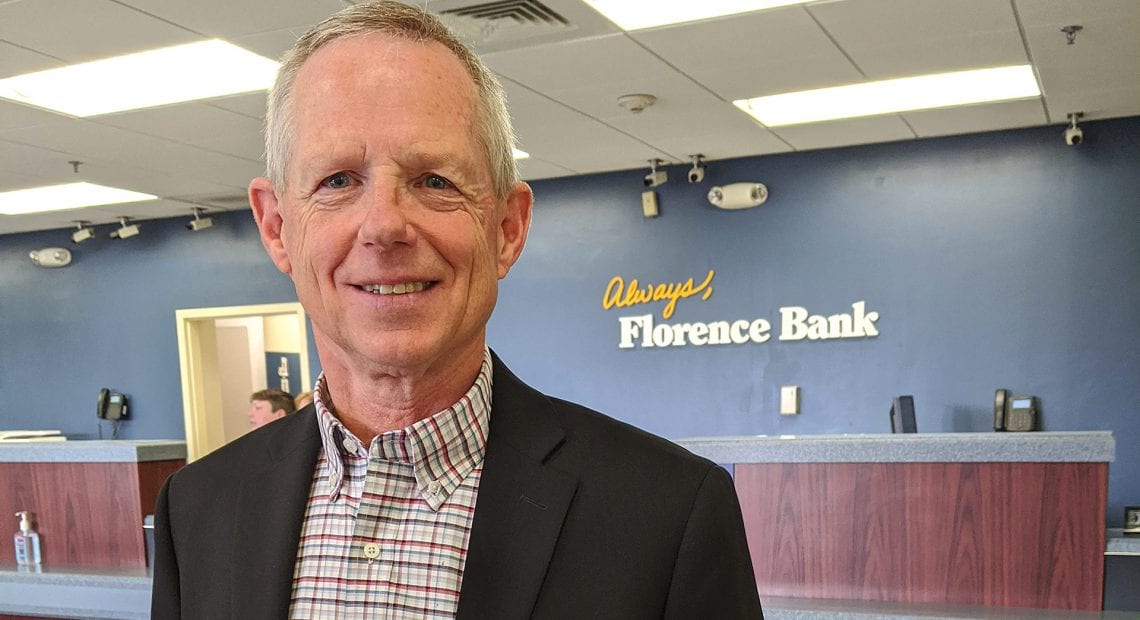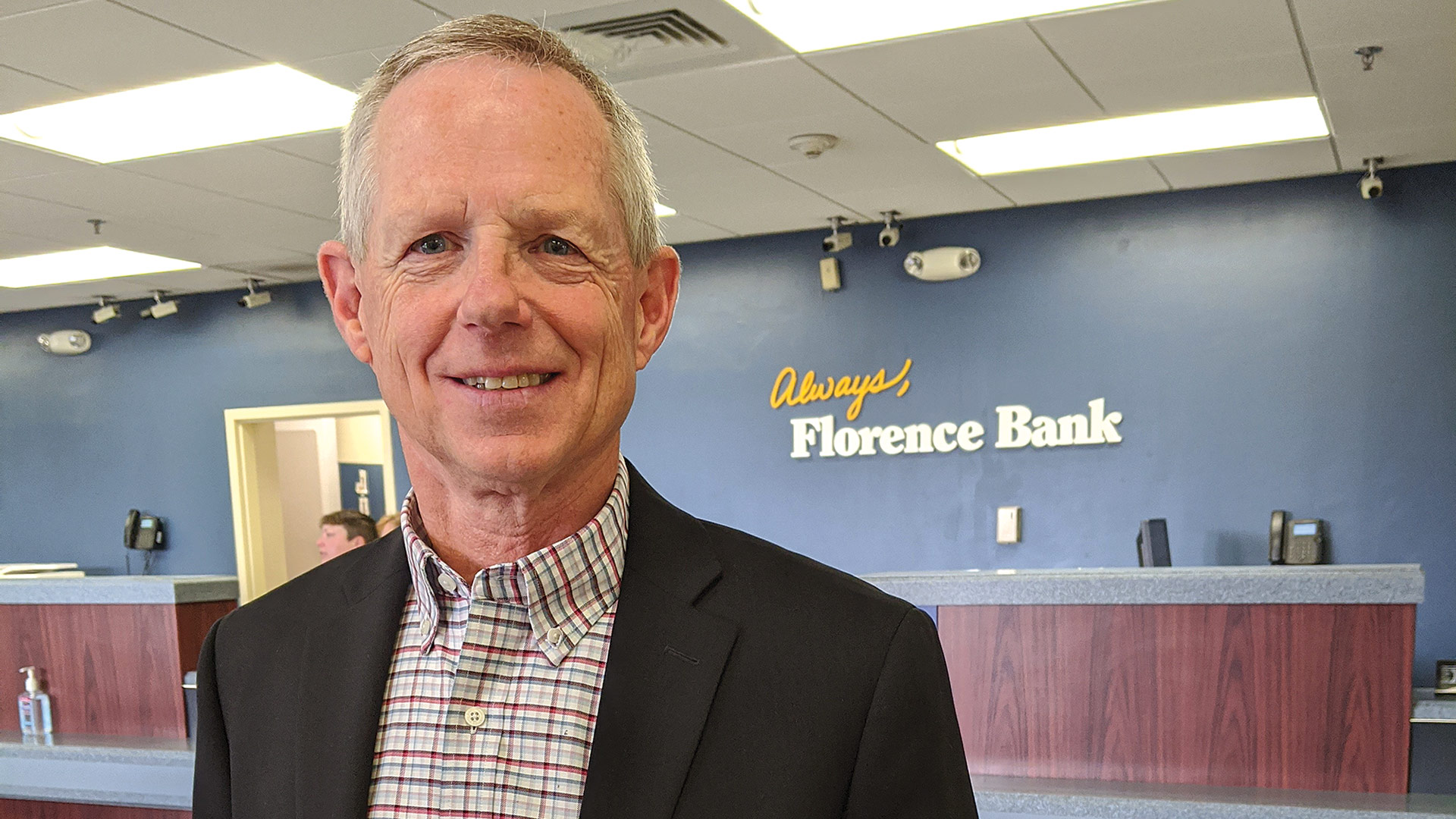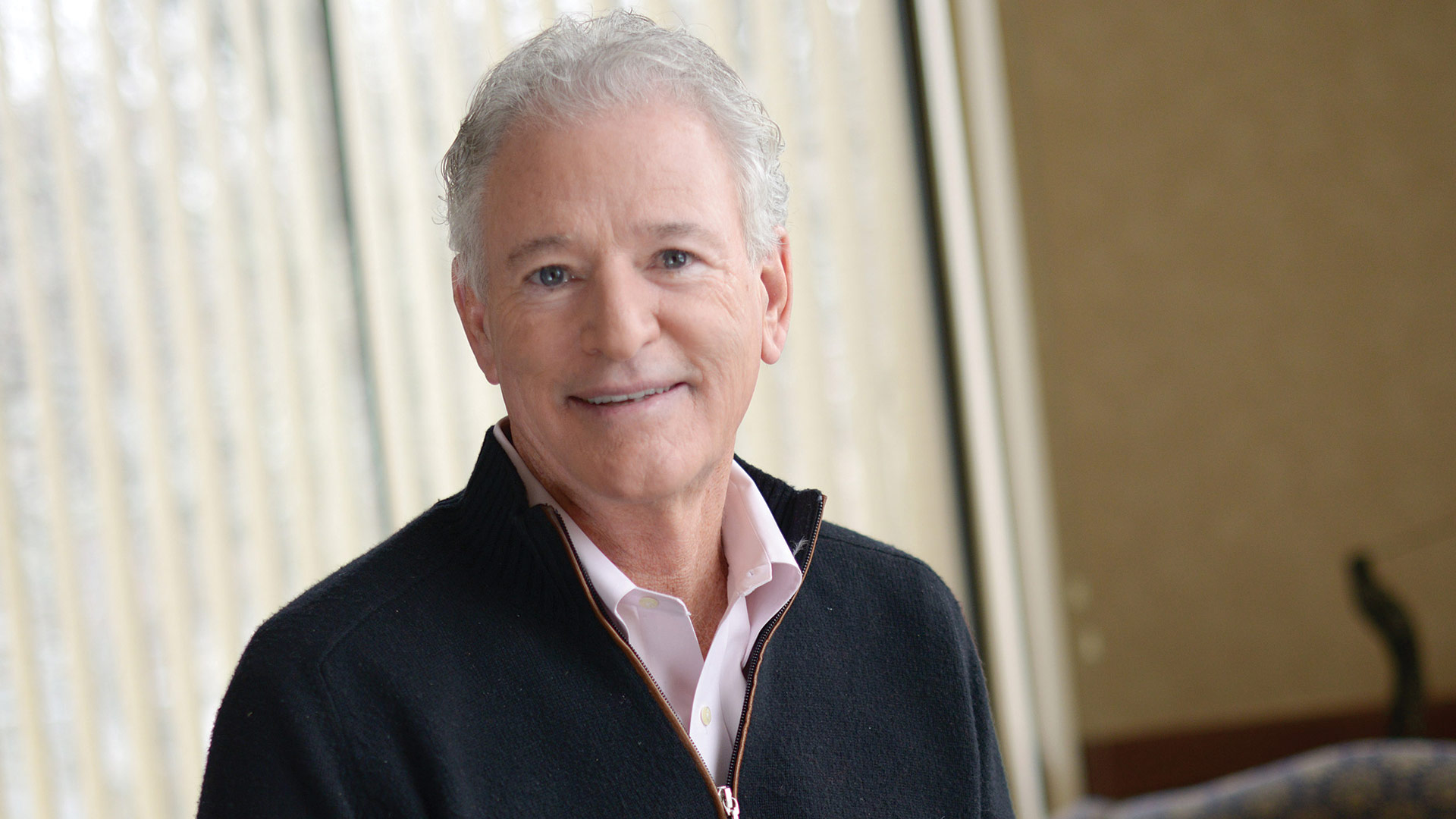
Kevin Day Begins a New Phase as President of Florence Bank
Natural Transition

Kevin Day
In some ways, Kevin Day is no stranger to running Florence Bank — he was already overseeing about 90% of its departments as executive vice president, a series of responsibilities he gradually took on after coming aboard as CFO in 2008. So he was a natural choice to succeed John Heaps Jr., who recently stepped down after 25 years as president. Day’s mandate is simple — keep a bank known for its steady, organic growth moving forward, and keep cultivating the culture of teamwork that allows such growth to occur.
When Kevin Day joined Florence Bank as chief financial officer in 2008, he was responsible for finance, facilities, and risk management. He must have been doing something right, because his role later expanded to include compliance in 2013, residential lending in 2014, and retail banking in 2016, at which time he earned the title of executive vice president.
“Gradually, my role expanded to where, all of a sudden, I looked back one day and said, ‘wow, 90% of the bank reports to me. How did that happen?’” he said.
That broad oversight made him a natural choice to replace John Heaps Jr., who stepped down as president of Florence Bank in January after 25 years in that role. On May 1, he’ll retire as CEO as well, and Day will take on that title, too.
“Gradually, my role expanded to where, all of a sudden, I looked back one day and said, ‘wow, 90% of the bank reports to me. How did that happen?”
“In my CFO role, I tended to have fingers in a lot of different places anyway — rate setting, strategy in many areas, facilities. We had started to expand into Hampden County. I had full responsibility for that transition, along with retail responsibility,” Day explained. “Then, a few years back, when John said, ‘hey, retirement’s coming up for me. Would you be interested in stepping in after me as president?’ I said I’d be happy to.
“You know, honestly, that wasn’t a role that I came here for,” he added. “My philosophy in life in general, but certainly in business, has been ‘just do the best you can.’ It’s the key tenet I spoke to our employees about at our meeting when I was promoted. I said, ‘the number-one thing you can do is just do your best in whatever role you have.’ And that’s all I’ve ever tried to do. I would have been happy to sit here as CFO the rest of my career, but when John decided to move on, I said, ‘yeah.’”
The job is the culmination of not only more than 11 years at Florence Bank, but a lengthy career spent in the financial world, including roles at more than a half-dozen other banks. This change, at least culturally, promises to be a smooth one, he noted.
“Every job transition I’ve ever had, it takes a year to figure out, ‘what have I gotten into?’ — whether it’s good or bad,” he explained. “After a year, you can look back and say, ‘wow, this is what this place is all about.’ I don’t have any of that here. I know many of our customers, I know our staff, and they all know me. It has been extremely smooth.”
Much of the credit for that has to do with the culture fostered by Heaps over the past quarter-century, Day said — one that emphasizes teamwork in all dealings.

John Heaps Jr., who served as president of Florence Bank for 25 years, grew its assets and reach steadily over that time, including a successful and ongoing push into Hampden County.
“That’s the key. It’s one of two key principles I live by. The other is simplicity. I don’t like things complex. When you make decisions when you can’t understand things, you get it wrong more often than you get it right,” he went on. “John always explained things and discussed things. And with all the moves we’ve made, everyone’s been on board.”
Those moves have been many in recent years, including that aforementioned Hampden County expansion (more on that later). And Day is excited to see how the bank continues to evolve from his chair in the office he never thought he’d occupy.
Part of the Team
Immediately after earning his bachelor’s degree in business administration at UMass Amherst, Day worked for five years as a CPA for the accounting firm Arthur Young & Co. in Worcester. When he looked for a career change, he got into banking “totally by accident.”
Well, not exactly — he had been rubbing shoulders with bank controllers, treasurers, and presidents as part of his CPA work, and always found their work interesting. When a position became available as a controller for Consumers Bank, also in Worcester, “it hit all my criteria,” he recalled, and he jumped into a new role.
After three years, the bank was sold, and he jumped off for a position in New Hampshire, where he lived for 25 years and raised a family, working for a number of institutions. “I learned a lot in each job, some from really good experiences and some from really tough experiences, but all of that shapes who you are. Several things I went through in the banking world were really awesome experiences, and some I would never want to repeat again.”
“I learned a lot in each job, some from really good experiences and some from really tough experiences, but all of that shapes who you are. Several things I went through in the banking world were really awesome experiences, and some I would never want to repeat again.”
His next stop was Unibank in Central Mass., where he worked for 15 years, and figured he would remain there as CFO for the rest of his career. But he was intrigued by a job description from Florence Bank, also for a CFO — and by the interview process itself.
“The way we do interviews here, particularly for senior people, is the president and all the senior officers individually interview you. I spent the whole day here, basically every hour talking to a different person, and that really impressed me,” Day recalled. “Number one, it gave me insight into all the different people who were here running the various areas of the bank. And what struck me was, ‘wow, these people are really nice.’ They were very genuine, and the bank’s a good bank — I could tell that from the financials.”
In 2008, at the height of a global financial crisis, it may have been a dicey time to switch banks, he said, but because of Florence’s financial health — Heaps had been steadily growing assets and services since his arrival — and the impression the senior staff had made during those interviews, Day accepted the job.
Job one was moving forward from a time of great difficulty in the industry, he added. “Things started moving in a decent direction. We had low capital ratio at the time, so we put a plan in place to improve that. The economy became better, and the plan worked; our capital levels rose, and we started making decent money, and things just came together.”
That sense of teamwork and collaboration helped, he told BusinessWest. “Every organization likes to think of themselves, ‘oh, we’re a team.’ But very few actually are. We really have a great team. We’re careful to bring people in who buy in and agree with the culture we have. That sense of teamwork is important, which makes my transition to president really easy, honestly.
“There’s no jealousy, no backstabbing,” he added. “That’s one of the things that drew me in the first place. These people aren’t climbing over each other, they’re working together.”
Heading South
Lately, they’ve been working on a multi-phase expansion into Hampden County. Florence Bank, headquartered in its namesake town, has long been a Hampshire County institution, with branches in Amherst, Belchertown, Easthampton, Granby, Hadley, Northampton, and Williamsburg.
But in the past three years, it opened up branches in West Springfield and Springfield, with a site in Chicopee to follow in 2020, and then perhaps two to four more in the next five years.
“I’ve been intimately involved in site selection, branch design, branch staffing, setting up everything related to that,” Day said. “It’s been a great deal of my day-to-day responsibilities over the past several years.”
When he announced the first move a few years ago, Heaps said a recent spate of mergers of community banks in Hampden County created an uncommon opportunity for a mutually held bank that makes decisions about what’s best for customers and the community without input from stockholders.
And a geographic presence needs to be a part of that strategy, Day said — even in the mobile age.
“Branching is changing,” he noted. “Banking in general has gone electronic. Customers can do so much more away from the branch. But they still need to know who they’re banking with, and we feel you’ve got to have a footprint, and people have to be able to see you. If we’re not physically in the communities, it doesn’t feel like we’re there.”
“I feel bad for people who get up in the morning and sort of dread coming to work. I’ve enjoyed coming to work most of my career. But coming here is the best of anything I’ve done. I’m glad I’m ending my career in a place like this.”
Although online and mobile banking are now omnipresent, he went on, customers still want a place they can go to get questions answered and problems solved. “No one wants to wait on the phone — talking face to face is still important, even with all our convenience and technology. Our electronic channels are expanding, but if you have a problem, you want to go to a branch.”
That presence is a form of marketing, but traditional media messaging is important, too. The bank’s marketing emphasizes the tagline ‘always,’ reflecting its mutual form of ownership, which assures, among other things, that it can’t be forced into a sale or merger with another bank.
“We’re always going to be here,” Day said. “You never have to worry that next year we’ll be owned by someone else, and the decision makers will be in Connecticut or Boston or New York or California. The decision makers work here and live here.”
That mutual model is important to many people in the Pioneer Valley who grew up in a community-bank culture, he added. “Our mutual model is what allows us to be local and stay local. When you’re owned by shareholders, those shareholders are from who knows where, and their goals and objectives can be vastly different from what ours are.”
He added that he knows customers who have been with the bank 40 years or more, through all phases of their lives — and all the financial challenges life brings, from buying a home to paying college tuition to saving for retirement.
“I don’t know anybody who really loves change, but it’s a fact of life. You’ve got to deal with it,” he said. “It’s good to know that your banking situation is something that won’t change. Florence will be here.”
In a Good Place
During Heaps’ 25-year tenure as president, Florence Bank’s capital has grown from $24 million to $161 million, and assets have grown from $283 million to $1.4 billion, and from four branches to 11 — soon to be 12. Meanwhile, the staff has doubled from 112 full-time employees to 221 now.
While the future will see at least a couple more branches, Day said the focus will continue to be on steady, organic growth, as opposed to the merger-happy way some local banks have grown over the past two decades.
The coming years will also bring a continued emphasis on community giving, as evidenced by the 18th annual Customers’ Choice Community Grants Program, celebrated at Look Park on March 10, where 57 nonprofits received $100,000 in awards based on voting by bank customers. The program has given more than $1.2 million since its inception.
“Our customers love it, the community loves it — it’s just a heartwarming event,” Day said. “We give a lot outside that program, but this is a step above. It just cements our core mission to help as many people as we can, as best we can.”
Active in the community in other ways, Day is currently a member of the board of directors and the finance committee for United Way of Hampshire County, a board member for the Springfield Rescue Mission, a member of the finance committee for Westfield Evangelical Free Church, and board president for the Northeast Center for Youth and Families.
But serving people through his job gratifies him just as much.
“I think it’s the people I work with,” he told BusinessWest. “Yes, they’re all extremely competent in their disciplines, but I’ve worked in places with really smart people who are not fun to work with. Here, they’re smart and good at what they do and nice to be around.
“I feel bad for people who get up in the morning and sort of dread coming to work,” he added. “I’ve enjoyed coming to work most of my career. But coming here is the best of anything I’ve done. I’m glad I’m ending my career in a place like this.”
Joseph Bednar can be reached at [email protected]





